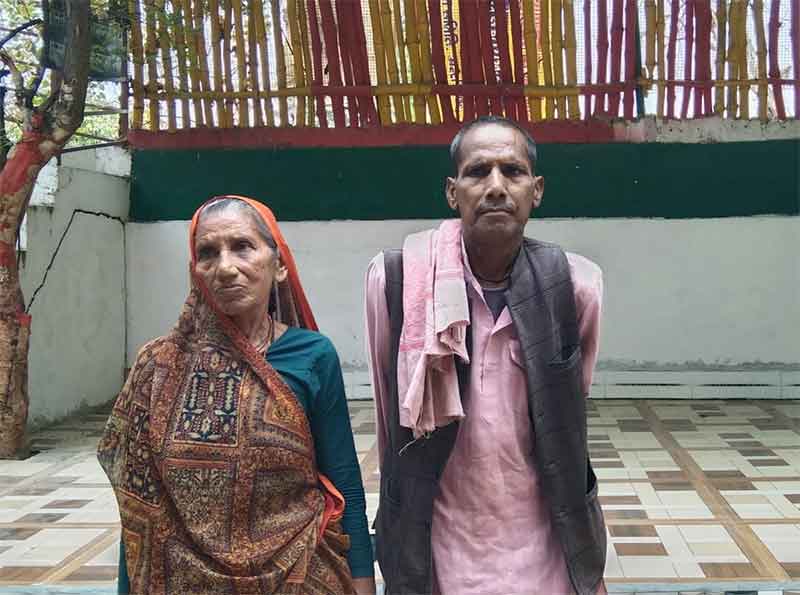
In recent years increasing distress of farmers has been reported from several parts of India leading in extreme cases to a large number of suicides by farmers. While many different factors may be involved in these suicides, increasing difficulties faced in farming related livelihoods and in particular indebtedness of farmers clearly constitute a very important factor.
Another important dimension of this problem is that weather has been becoming increasingly erratic and there are more extreme weather events and disasters in these times of climate change. In particular heat wave conditions have intensified in many places. This has led to further aggravation of problems of farmers and workers as well as worsening of living and health conditions as well.
Bundelkhand region comprising 14 districts of Central India (7 in Uttar Pradesh and 7 in Madhya Pradesh) has been one of the hot spots of these increasing problems. Many farmer suicides and large-scale distress migration of villagers have often been reported from here. Erratic weather conditions, droughts followed by untimely concentrated rain and hailstorms have often been reported from here, while the recent intense heat wave is raising frightening visions of what may be in store in future if temperatures continue to rise so high or even higher.
In such conditions it has become even more important to work for reducing distress of farmers. A project recently started by a voluntary organization Vidya Dham Samiti is aimed at reducing this distress at three levels. Firstly, an attempt is being made to contact some of the families in which farmer suicides have already taken place, to extend some support to them and to extend a helping hand for any support they may require in the near future. Secondly, using the network of local contacts and information, an attempt is being made to identify those clusters or families where distress and indebtedness are known to be at high levels so that some help can be extended here to the more vulnerable households to reduce significantly the possibilities of any extreme tragedy like a suicide or a suicide attempt.
Thirdly, some wider farming and other livelihood initiatives are being taken which can help to create conditions of hope and initiative in some villages at least and these in turn are expected to have a wider ripple effect in other nearby villages as well. In farming these initiatives are likely to be in the form of promotion of natural farming and more diverse as well as mixed cropping patterns, supported by conservation of local seeds and bio-diversity. On the one hand these efforts are based on making farming more sustainable and environment friendly, also contributing much to climate change mitigation and adaptation. On the other hand, these initiatives are also likely to significantly reduce farming costs and in the process also reduce in a big way the threat of increasing indebtedness ( at least to the extent that this is related to high and increasing farm costs).
Apart from farming related initiatives, these efforts also aim to suggest the possibilities of several other diverse sources of livelihoods, particularly from the perspective of those members of weaker sections who have a low resource base and hence cannot make any significant investment on their own. These include activities like food processing (linking demand for healthier food with increased income), collection and processing of various minor forest produce ( linked also to growing more trees), artisan and craft based activities including improvement of existing skills and introducing new skills and designs, activities in response to relatively new needs (such as mobile repair shops) or a concept of village-level shops which sell products of such new units along with health foods while avoiding some widely sold harmful products such as various tobacco and guthka products. Some successful efforts in this direction can also generate a hope for others too.
Subscribe to Our Newsletter
Get the latest CounterCurrents updates delivered straight to your inbox.
At a time when farmers’ suicides were at a peak in Vidarbh region of Maharashtra, it was a pleasant surprise that in some villages where a development project on integrated and sustainable agricultural development (INSAP) had been implemented, suicides had not taken place because farmers in these villages had become involved in highly creative work related to ecologically friendly farming which also led to reducing their expenses and hence also their debts in a big way. Many more sincere initiatives of this kind are needed.
The initiative by Vidya Dham Samiti, supported by an organization called ‘Give Do’ is at a smaller level just now but learning from its initial efforts, hopefully this can be scaled up later. In some contexts the efforts of Vidya Dham Samiti already have a broader vision. It is aiming at not just agriculture-related initiatives but in addition also at non-farming livelihoods. Secondly, these efforts have a wider social dimension in terms of trying to reduce alcoholism, all intoxicants and several other harmful expenses as well. The success of these efforts can lead to a wider ripple effect in society.
Bharat Dogra is Honorary Convener, Campaign to Save Earth Now. His recent books include Protecting Earth for Children, Man over Machine and India’s Quest for Sustainable Farming and Healthy Food.












































